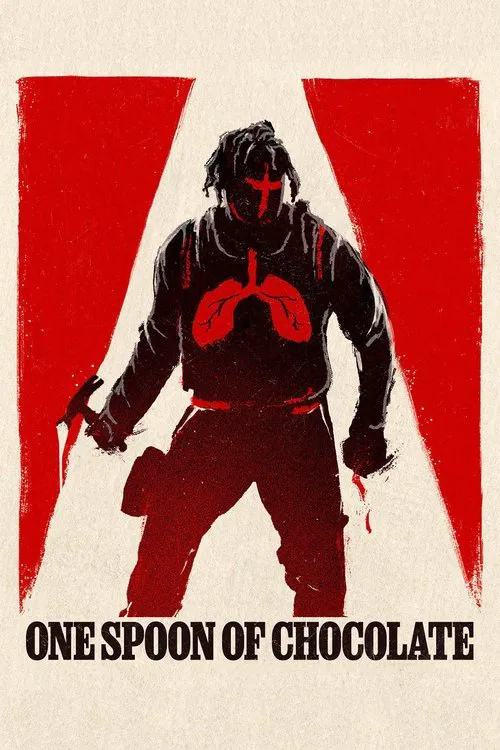One Spoon of Chocolate

Plot
In the film 'One Spoon of Chocolate,' a ruggedly intense and stoic military veteran, played by an actor imbuing the character with an air of gravitas, emerges from the confines of a corrections facility with little in terms of worldly possessions other than the faint scent of confinement lingering on his clothing and in his soul. He seems determined to put the experiences of his past, and the harsh realities that have hardened him so profoundly, firmly in the past as he sets out with the quiet intention of forging a new and solitary life in a quaint small town in Ohio. This quiet resolve, however, is short-lived, as events rapidly spin out of control, forcing our embattled protagonist to confront the unpalatable truths that lie beneath the seemingly idyllic façade of the small town he now calls home. It becomes increasingly apparent that beneath its tranquil surface, this tight-knit community harbors a deep-seated social agenda, replete with sinister undertones and malevolent intentions that have long been shrouded in an aura of unobtrusiveness. As the veteran navigates the complex web of relationships that comprise the town's social hierarchy, he begins to notice a growing sense of unease, one that is compounded by a pervasive feeling of claustrophobia, as he discovers the extent to which the townsfolk are willing to go in order to maintain their carefully cultivated status quo. It is in this bleak and foreboding atmosphere that the veteran's past and present converge, igniting a maelstrom of violent upheaval as he finds himself compelled to exact a form of brutal justice upon the residents who have so grievously wronged him and, indeed, the entire community. Throughout, it becomes increasingly clear that the veteran's capacity for violence is not merely a product of his military background, but also a direct consequence of the deep-seated emotional scarring that has haunted him since his return to civilian life. His struggle to cope with the trauma he experienced during his military service has left him struggling to adapt to the societal norms that govern the town he now inhabits, a reality underscored by the pervasive sense of resentment that pervades the narrative. Moreover, it appears that the townsfolk are, in fact, aware of the veteran's troubled past and are willing to exploit this knowledge for their own nefarious purposes. It is through this twisted dynamic that we catch a glimpse of the deep-seated corruption that has come to permeate the very fabric of this seemingly idyllic community. The lines between right and wrong are continually blurred, leaving the viewer in a perpetual state of moral ambiguity as we are forced to grapple with the motivations of our protagonist, a character whose willingness to engage in brutal violence serves as a means of exacting revenge upon those who have wronged him. As tensions escalate, the veteran's actions increasingly spiral out of control, threatening not only the social fabric of the town, but also those he cares about, or at least, who might have cared for him were he in a different place and at a different time. It is against this backdrop of intense violence and raw emotion that we are forced to confront the possibility that the veteran's actions may ultimately be more self-destructive than the justice he aims to mete out. Ultimately, the film arrives at a haunting and unsettling conclusion, one that raises profound questions about the true nature of justice and the devastating consequences that can arise when societal norms are so brutally disregarded. As the credits roll, the viewer is left pondering the extent to which the veteran's capacity for violence has been a product of his own internal demons or a direct reaction to the corruption that has so profoundly infected this small community. As for the character of the military veteran, we are left with a lasting and haunting impression, one that underscores the profoundly negative impact of military service on the psychological well-being of those who have served, and the often-catastrophic consequences that can arise when such individuals are thrust into civilian society without adequate support or guidance. In the end, 'One Spoon of Chocolate' serves as a scathing indictment of the societal ills that can arise when those in positions of power seek to exploit the vulnerable, and the profound importance of empathy, understanding, and compassion in the face of human suffering.
Reviews
Recommendations



